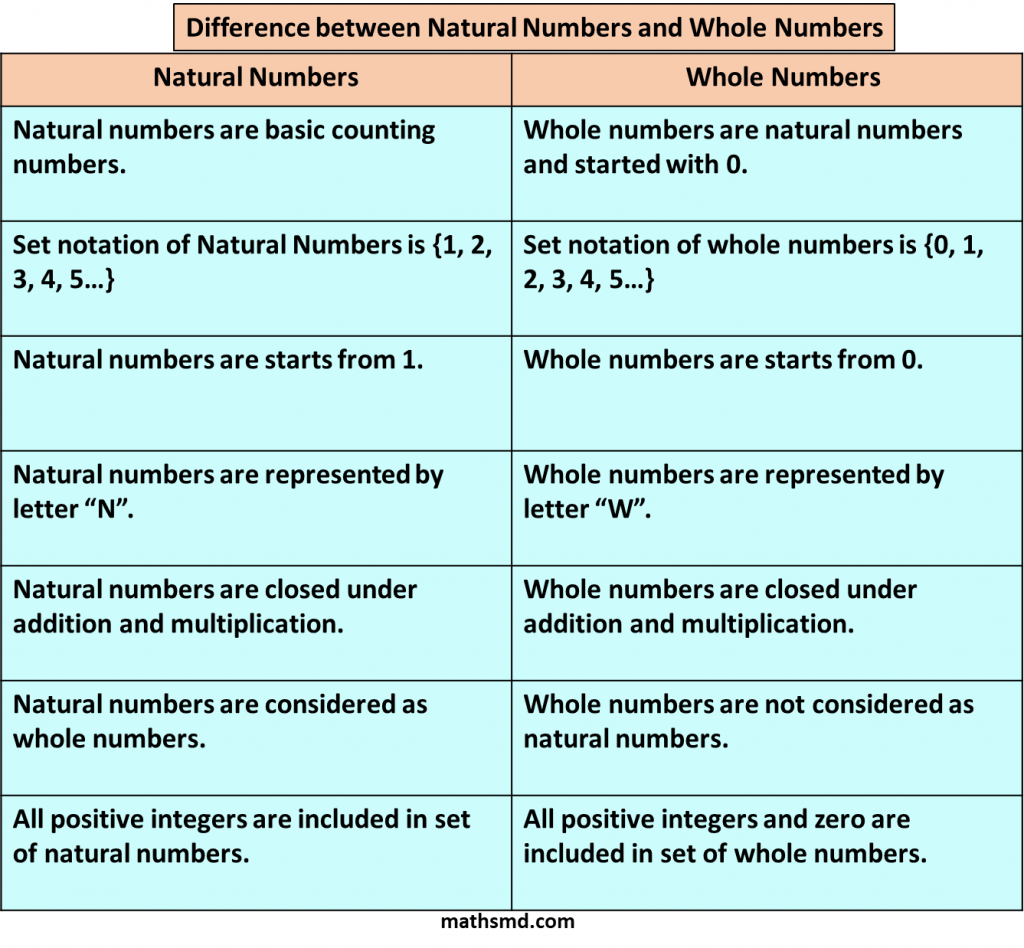Difference between Natural Numbers and Whole Numbers
Difference between Natural Numbers and Whole Numbers
In this tutorial, we will learn the definition of natural numbers, whole numbers, and difference between natural numbers and whole numbers.
The main difference between natural numbers and whole numbers is the presence of the number 0.
0 (zero) is the part of set of whole numbers and zero is not present in the set of natural numbers.

In mathematics different types of numbers – Natural Numbers, Whole numbers, Integers, Rational Numbers, Irrational Numbers, Real Numbers and Complex Numbers.
What are Natural Numbers?
Natural numbers are counting numbers. Natural numbers are a part of the number system, including all positive integers from 1 to infinity. Natural numbers do not include 0 or negative numbers.
Set of natural numbers N = {1, 2, 3, 4, 5….}
1 is the smallest natural number.
Examples of natural numbers are 5, 21, 32, 165, 346.
What are Whole Numbers?
A set of numbers including natural numbers, and 0 is called whole numbers.
Set of whole numbers W = {0, 1, 2, 3, 4, 5….}
Examples of whole numbers are 0, 2, 21, 45, 432, 675 all are whole numbers.
0 is the smallest whole number.
Whole numbers are represented on right side of the number line.
